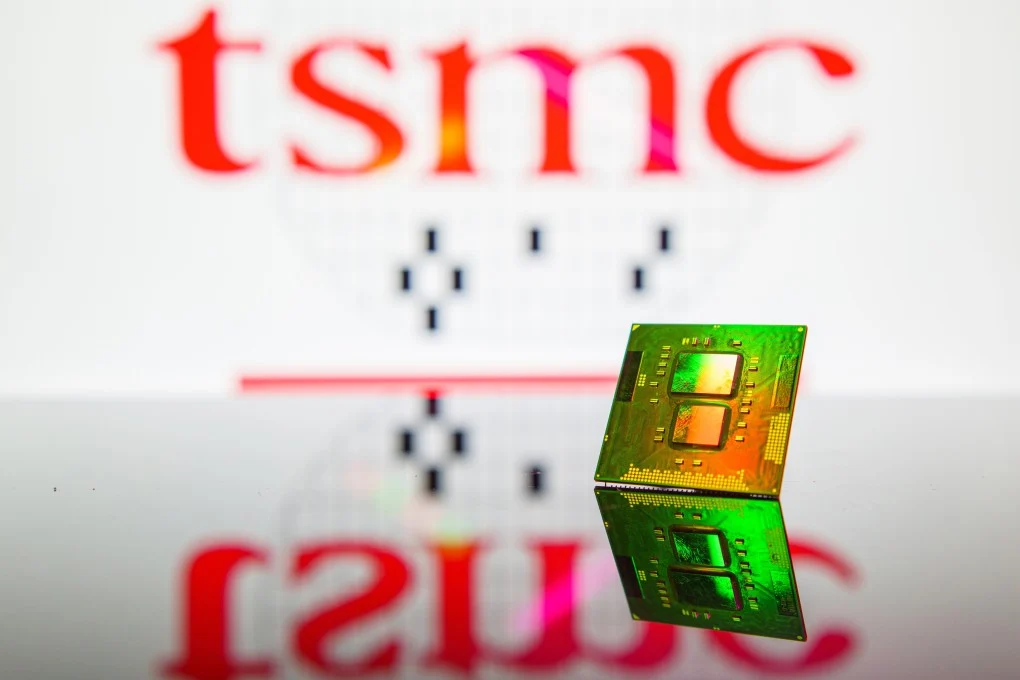
*Image from the internet; all rights belong to the original author, for reference only.
TSMC Arizona Factory to Start Production of Nvidia AI Chips
With the global surge in demand for artificial intelligence (AI) and high-performance computing, Nvidia’s Blackwell AI chips have seen a significant rise in demand, particularly in data centers and autonomous driving. To mitigate supply chain risks, Nvidia and TSMC have decided to move part of the production to Arizona, USA. TSMC plans to start mass production of these chips in its new Arizona facility in early 2025. However, due to the lack of packaging capabilities at the Arizona facility, the chips will still need to be shipped back to Taiwan for final packaging. This collaboration marks a significant adjustment in the global semiconductor landscape for both companies. The partnership is still in negotiations but is expected to bring new market opportunities and production shifts. By localizing production, both companies will be able to better meet the growing demand for AI chips and drive technological innovation in the U.S., while also having a profound impact on the global semiconductor supply chain, accelerating the adoption and application of AI technology.
Q1: How is the collaboration between Nvidia and TSMC for AI chip production in the U.S. unfolding?
The collaboration between Nvidia and TSMC involves the production of Nvidia’s Blackwell AI chips at TSMC’s new Arizona facility. According to reports, TSMC plans to start mass production of these chips in early 2025. Although production will take place in the U.S., the chips will still need to be shipped back to Taiwan for final packaging due to the lack of CoWoS (chip-on-wafer-on-substrate) technology at the Arizona facility. TSMC’s Arizona plant already serves customers like Apple and AMD, and Nvidia’s Blackwell chips will become a new addition to the plant’s client roster, further expanding TSMC’s presence in the U.S. market.
Q2: What significant impact will this collaboration have on the supply chain?
By producing AI chips locally in the U.S., the collaboration between Nvidia and TSMC will significantly enhance the stability and flexibility of the supply chain. With the rapid growth in demand for AI chips, especially high-performance computing chips, local production will reduce dependency on Asian manufacturing bases, cutting down transportation time and costs, and mitigating potential geopolitical risks. Additionally, manufacturing in the U.S. will enable Nvidia to respond more quickly to the U.S. market’s needs, particularly for data centers, autonomous driving, and other sectors requiring AI chips.
Q3: Which products will be impacted by this collaboration?
This collaboration will directly impact several high-tech electronic products, particularly AI accelerators and high-performance computing hardware. Nvidia’s Blackwell chips will be widely used in data centers, cloud computing, and AI inference applications, enabling businesses and research institutions to perform more efficient computing tasks. Moreover, autonomous driving systems and smart devices will increasingly rely on Nvidia’s AI hardware. As production becomes localized, delivery times will be significantly shortened, accelerating the adoption and application of these technologies.
Q4: What impact will this collaboration have on the U.S. domestic semiconductor industry and technological innovation?
The collaboration will have far-reaching effects on the U.S. semiconductor industry. TSMC’s Arizona facility, set to begin mass production in 2025, will bring increased competitiveness to the U.S. semiconductor manufacturing sector, encouraging the return of manufacturing to U.S. soil. This will help reduce the U.S.’s dependence on foreign supply chains and increase the country’s ability to produce semiconductors and AI technology domestically. U.S. tech companies, especially those in data centers and AI infrastructure, will be able to acquire chips more quickly, accelerating technological innovation and applications. Furthermore, TSMC’s production in the U.S. may boost the development of the domestic AI industry. For instance, Elon Musk’s xAI is already building significant AI infrastructure and has procured a large number of Nvidia GPUs, indicating a rapid expansion of AI hardware demand in the U.S. market.
Q5: What competitive pressure could this collaboration bring to other semiconductor companies?
TSMC’s collaboration with Nvidia will undoubtedly put significant competitive pressure on other semiconductor companies. With TSMC ramping up production capabilities in the U.S., Nvidia will be able to respond more quickly to AI chip market demands, particularly in data centers and autonomous driving. This will likely result in longer delivery times and higher production costs for other semiconductor companies, such as AMD and Intel, which lack local production facilities. Additionally, companies like Dell, which are benefiting from the surge in AI hardware demand, have already seen their AI server sales reach $2.9 billion. As the AI hardware market continues to grow, global semiconductor companies will need to accelerate their technological innovations and supply chain localization efforts to stay competitive with Nvidia and TSMC.
Q6: What impact will the collaboration between Nvidia and TSMC have on the global technological landscape?
The collaboration between Nvidia and TSMC will not only reshape the semiconductor supply chain but also have a profound impact on the global technological ecosystem. TSMC’s production capabilities in the U.S. will solidify its leadership in the global semiconductor foundry market and enhance the U.S.’s ability to produce AI, 5G, and autonomous driving technologies domestically. Localized production will accelerate the spread of AI technologies, allowing global tech companies to more efficiently access AI chips and reduce uncertainty caused by international shipping. As demand for Nvidia GPUs and AI servers skyrockets, companies like Dell are already reaping the benefits of this trend, while Musk’s xAI and other companies are rapidly building AI infrastructure. This collaboration will speed up the global development and adoption of AI technologies, driving the world’s technological ecosystem toward greater efficiency and intelligence.
© 2024 Win Source Electronics. All rights reserved. This content is protected by copyright and may not be reproduced, distributed, transmitted, cached or otherwise used, except with the prior written permission of Win Source Electronics.

COMMENTS